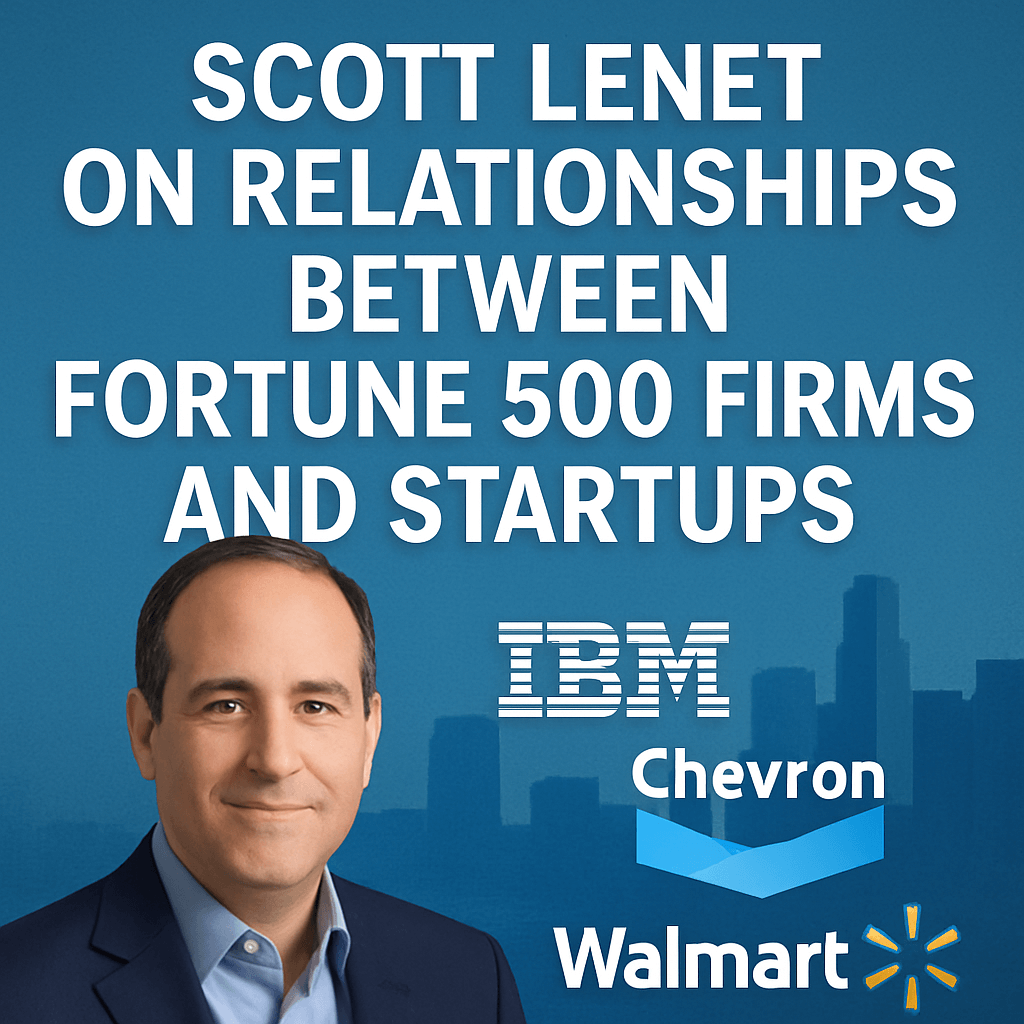Scott Lenet on Relationships Between Fortune 500 Firms and Startups

This year’s Fortune 500 list was released, with Walmart maintaining its position at the top. Notable newcomers included Oscar Health and Palo Alto Networks, debuting at positions 437 and 470, respectively. This influx of new companies highlights the ongoing dynamism of the corporate landscape in the U.S.
The Interaction Between Fortune 500s and Startups
The relationship between established companies on the Fortune 500 list and emerging startups is often reciprocal, akin to a two-way street. Startups are in a continuous quest to secure Fortune 500 corporations as clients, while a select few achieve the scale necessary to join the ranks of these corporate giants. The success stories include industry titans such as Google, Meta, Amazon, and Airbnb, each starting as venture-backed entities before significantly scaling their operations.
Insights from Scott Lenet of Cerity Partners
One prominent figure navigating this bridge is Scott Lenet, an experienced venture investor who now focuses on helping large corporations invest in innovative startups. With an increase in investments during the current AI boom, understanding which startups might emerge as future Fortune 500 companies is a challenge. “Part of the question that as an industry we have to ask is: What are we really doing to produce companies that are enduring and can create a defensible market position?” Lenet explains.
Lenet argues that corporations can greatly enhance the potential of startups in various ways:
- **Customer Revenue:** Large firms can provide immediate revenue streams as customers.
- **Established Distribution Channels:** Corporations often have networks built over decades that can be leveraged by startups.
- **Scientific Expertise:** Experienced professionals can mentor startups, improving product offerings.
- **Supply Chain and Marketing Power:** Corporations can share insights and resources that help expand reach and efficiency.
The Role of Corporate Venture Capital (CVC)
Having moved from his previous role as managing partner at DFJ Frontier, Lenet has a distinctive position in the venture capital ecosystem. For over a decade, he has provided venture capital services to major companies, focusing on strategy, due diligence, founder relationships, and potential mergers and acquisitions (M&A). The recent merger of Lenet’s CVC advisory firm, Touchdown Ventures, with financial advisory firm Cerity Partners reflects a strategic effort to merge their respective client bases. Cerity CEO Kurt Micinski noted that there’s an increasing curiosity among business leaders regarding investments as they engage in their professional roles.
Lenet provides a keen observation on the current state of corporate investments: “What we’re seeing in the market, generally, for corporations right now is profits, growth, dividends—the blocking and tackling of being a business.” He emphasizes the shift towards substantiating value against mere hype, especially within the context of AI investments.
CVCs: Bridging the Gap
Despite the apparent synergies, a disconnect often exists between large corporations and startups. “Corporations and startups can help each other, but they don’t speak the same language,” Lenet points out. This gap requires tailored assistance to navigate the realms of innovation and investment.
Rob Martens, president of Allegion Ventures, which is now part of Cerity Partners, echoes these sentiments. His perspective on how to manage the innovator’s dilemma at a century-old company emphasizes creating faster connections with entrepreneurial voices. “[When launching Allegion Ventures in 2018] we were asking: How do we break out of this innovator’s dilemma?” Martens said. By streamlining communication paths, significant knowledge transfer can occur in a mere 15 or 20-minute phone call.
Outlook on Future Fortune 500 Entrants
As the Fortune 500 landscape continues to shift annually, it’s evident that a handful of emerging entrants are often today’s startups, facilitated by their interactions with established corporations. The question remains: which of today’s startups will evolve into the giants of tomorrow? This continuous evolution reflects the dynamic nature of commerce and innovation, suggesting future opportunities within sectors driven by technology incumbents, corporate collaborations, and evolving consumer demand.
Recent Funding Activity in the Startup Ecosystem
The venture capital landscape remains vibrant with multiple funding rounds recorded across various sectors. Here are some notable recent fundings:
- Aerones: A Riga-based provider of robot-powered wind turbine inspection services, raised $62 million led by Activate Capital and S2G Investments.
- OatFi: A New York-based B2B payments platform securing $24 million in Series A funding led by White Star Capital.
- Rally UXR: Acquired $11 million in Series A funding for its User Research CRM, led by Canapi Ventures.
- GC AI: A new AI platform targeting legal teams raised $10 million in Series A funding.
Continued investment in these innovative platforms indicates a strong confidence in technology’s capacity to reshape traditional business models and drive new efficiencies. This shift underscores the critical importance of aligning startups with established corporations poised to leverage emerging technologies effectively—signifying an ongoing convergence of opportunities across the business landscape.
The future remains uncertain yet promising for startups aspiring to carve their niche in the Fortune 500 network, and the role of corporate giants will be essential in that transformative journey.
See you tomorrow,
Allie Garfinkle
X: @agarfinks
Email: alexandra.garfinkle@fortune.com
Stay updated on the latest in venture capital activity and corporate trends by subscribing to Fortune‘s Term Sheet, your daily resource on crucial deals and investment insights.